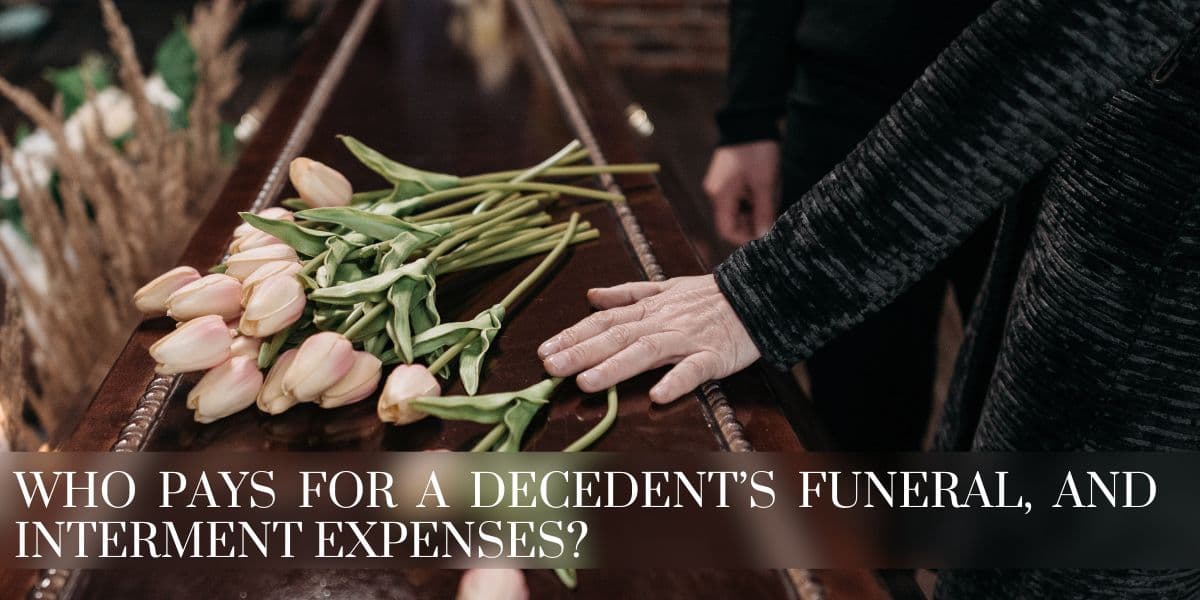
Who Pays for a Decedent’s Funeral, Interment, or Grave Marker Expenses?
Some individuals make arrangements for their funeral or burial expenses during their lifetimes. This may be accomplished through pre-need funeral merchandise or service contracts. But what if someone doesn’t make arrangements for their funeral during their lifetime? Who is responsible for paying the funeral or cremation expenses?
Reasonable funeral, interment, and grave marker expenses may be paid from a decedent’s estate, assuming there are sufficient assets to satisfy the expenses. In fact, reasonable burial expenses that do not exceed $6,000.00 hold a preferred class in the order of payment of estate expenses or creditors in a probate administration. Reasonable funeral expenses of $6,000.00 or less are satisfied after the costs of administration, compensation of personal representatives, and their attorney’s fees. See FL Statute 733.707.
An individual making funeral arrangements should proceed with caution. Not only must the funeral expenses be reasonable under Florida statute, but there should be sufficient assets in the probate estate to pay the funeral bill. Before running up large funeral bills, a thorough examination of the decedent’s assets subject to Florida probate should be conducted. This is incredibly important as funeral directors may hold the individual making the funeral arrangements personally liable for any portion of the bill over $6,000.00 or where assets are insufficient to pay the funeral bill.
If you have recently lost a loved one and need guidance on how best to proceed, contact our office today to schedule a complimentary consultation with one of our experienced Florida probate attorneys today.

